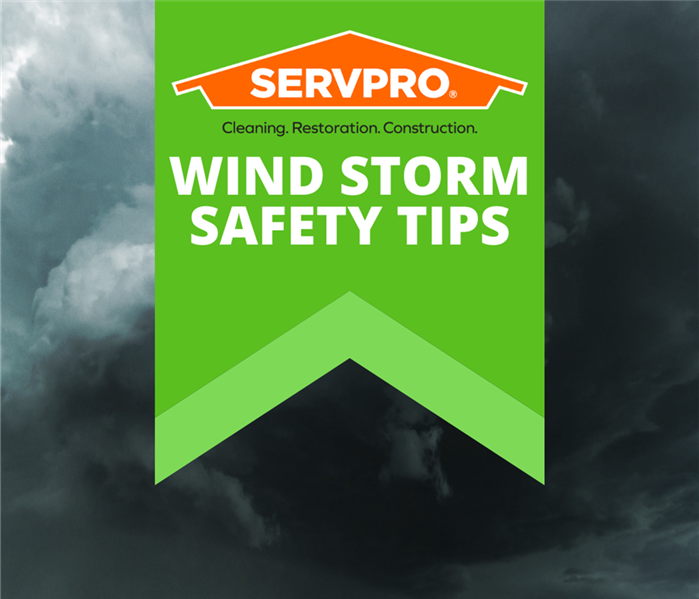How to Stay Safe During a Wind Storm!!
11/1/2021 (Permalink)
Winds can reach speeds of more than 100 miles per hour during extreme weather events such as tornadoes!
High winds of any speed can cause damage to homes and property, as well as flying debris and shattered glass, which can cause injuries. A disaster preparedness plan for your family, including a disaster survival kit and an emergency evacuation plan, can save your family from injury and inconveniences.
Keep yourself updated!
Weather updates and advisories will be broadcast on the radio and television. Having the most up-to-date information is critical to keeping safe during a weather event. For updates, utilize an NOAA Weather Radio or battery-powered radio, and keep an eye out for mobile alerts.
A high wind alert indicates that persistent winds of more than 25 mph are expected.
Warnings for thunderstorms and tornadoes should be taken seriously since they indicate that severe weather has been detected and is on its way.
During bad weather, seek cover!
- Remove yourself from windows and glass doors and into the center of your house or basement. Take refuge under a stairwell or a large piece of furniture.
- During heavy winds, do not stay in a mobile home. High winds can easily topple them, and flying debris can penetrate their light frames and exteriors.
- Make a safe room for yourself. If you live in a location where violent winds are common, you should consider constructing a safe room in your home.
Protect your home against extreme weather and wind events with these helpful tips!
- Vehicles that you want to leave behind should be parked or stored in a garage. If you don't have a garage, relocate your belongings to higher ground in the event of flooding.
- Garbage cans, patio furniture, barbecues, and other potentially wind-borne items should all be kept inside your house or garage.
- Close the doors and windows to your home. In the event of severe winds, board up windows and glass doors with shutters or plywood to prevent harm from broken glass.
- Secure your outdoor pool and turn it off. To avoid damage, turn off the circuit breaker for your outdoor pool and remove the engine.
- Tree branches that pose a danger should be removed. Pruning branches that may break off during a storm and injure someone or cause damage to your home or vehicles is a good idea.
- A generator can be rented or purchased. A generator can assist keep refrigerators, freezers, and lights running if you can rent or buy one. A severe storm can knock out power for days, if not weeks, at your home.
- Keep an ear out for weather updates on the radio. If you are told to evacuate, follow local officials' instructions and head to a shelter.
- Let your friends and family know where you'll be.
If you don't have time to get to a shelter, go to your safe room if you have one. Otherwise, stay in the center of your house or basement, away from windows, and hide under a stairwell or a large piece of furniture.






 24/7 Emergency Service
24/7 Emergency Service
